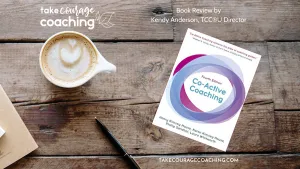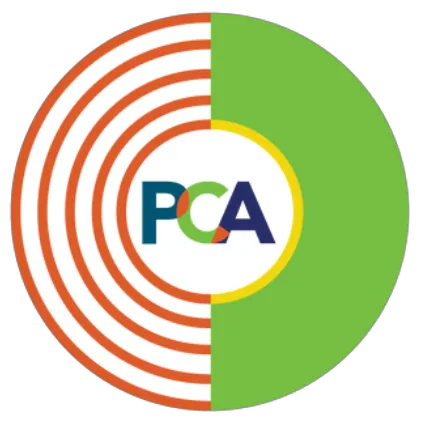
Review of Co-Active Coaching: The Proven Framework for Transformative Conversations
Our latest feature for our monthly book club is Co-Active Coaching, the fourth edition, by Henry Kimsey-House, Karen Kimsey-House, Phillip Sandahl, Laura Whitworth: The Proven Framework for Transformative Conversations at Work and in Life. Keep reading my Review of Co-Active Coaching: The Proven Framework for Transformative Conversations.
The Bible of Coaching Guides
Often called “the bible of coaching guides,” Co-Active Coaching is a power hitter in the coaching field. My highlighter was in use from the literal first page of the preface to the last page of the last chapter! In twelve chapters the authors walk you through the co-active coaching process from fundamentals to integration.
“We assume strength and capability, not weakness, helplessness, or dependence. We assume a deep desire to give the best and achieve potential. A co-active conversation has certain beliefs built into it: that every situation has possibilities and that people really do have the power of choice,” and there it is, the core premise this book and the co-active coaching practice is built on.
The Four Cornerstones of Coaching
Chapters 1 and 2 flesh out the fundamentals of co-active coaching, walking the reader through the four cornerstones that form what they call the container of the coaching relationship. The heart of co-active coaching is comprised of fulfillment, balance, and process that takes place through the contexts of listening, intuition, curiosity, action, and self-management. Coaching is not a methodology but a relationship, say the authors, and time is spent exploring the environment, coaching alliance, and format of each coaching relationship in depth.

Find out why this book is considered the "bible" of coaching guides
Practical Coaching Skills Explored
Chapters 3-7 cover the contexts of co-active coaching, which comprise the bulk of the book. One of the most insightful parts of this book for me was the descriptors used of Levels 1, 2 and 3 listening. Numerous practical coaching skills are explored along with developing and using your intuition, curiosity, and authenticity as well as self-management for the coach, for instance- what to do when you find you’ve disconnected during the coaching session.
Finding the Right Balance
Chapters 8-10 dive into those three processes of fulfillment, balance, and process. The importance of value work is tied to fulfillment for the coachee as opposed to what makes them feel good. “Values are the qualities of a life lived fully from the inside out”. Balance is not about giving equal weight to all things in a coachee’s life but about choosing life and not merely reacting to it, say the authors. Process is a nonlinear journey for the coachee that involves emotions. I loved this part of the book also, as it clarifies for the coach what to do with emotions that can show up in a coaching session. “Emotion is a legitimate form of expression, like words, music, and dance.”
The “What Ifs” of Co-Active Coaching
Chapters 11 and 12 pull all these concepts together and explore the “what ifs” of co-active coaching. “What if we held out the biggest picture possible instead of pointing out limitation? What if we came to expect greatness instead of failure? What if we acknowledged people’s strengths instead of flaws? In this world, learning and growth would be valued over comfort and appearance. This would be a transformative work indeed.” ‘Nuf said. I highly recommend this book!
Thank you for reading my review of Co-Active Coaching: The Proven Framework for Transformative Conversations. To get your own copy of this book click here: Co-Active Coaching, Fourth Edition
Want to read another book review? Try The Heart of Laser-Focused Coaching
A participant from the Heart of Laser-Focused Coaching webinar said: "I really enjoyed the conversation around this complex and skill-building book! Some of the author's concepts were familiar to me, while others were very new. I did implement a few ideas from this book with clients this past week and was amazed at how well my clients responded. Thank you for facilitating and leading us through this content. Much appreciated!"
About the Take Courage Coaching Book Club
Join our live book club webinars where you can earn 2 NBHWC-approved CE's monthly, to learn more click here: TCCU Book Club
What others are saying about our book club webinars:
"This book club is so helpful! I love hearing other coaches' advice, tips, and experiences!"
"The mentorship that I have received from this book club has been priceless. Thank YOU."
"Hearing the ideas of the other coaches is always my favorite part of these sessions! It's so helpful to hear how others are processing the book content."
If you would like to check out our past book club continuing education (CE) courses, click here: TCCU CE Courses
To learn more about our Health and Wellness Coach Training course, start here.
Keep up to date with PCA's blog.
Stay Updated
Sign up with PCA today to stay connected.


